Debt—it’s a word that often carries a heavy weight, conjuring images of financial strain and stress. However, what if I told you that amidst the daunting landscape of debt, there exists a beacon of hope? Debt negotiation—an often underappreciated and misunderstood solution—holds the key to financial liberation and a brighter future.


Understanding Debt Negotiation
Debt negotiation isn’t about merely avoiding payments or walking away from responsibilities. Instead, it’s a strategic and proactive approach to managing debt burdens. It involves working with experienced professionals who engage directly with creditors on your behalf, aiming to renegotiate terms that are more feasible for your financial situation.
Benefits That Resonate
- Reduced Debt: The most immediate and apparent advantage of debt negotiation is the potential to significantly reduce the total amount owed. Depending on the financial and life circumstances of the debtor, negotiators can often secure agreements to stop fees and interest charges on the amount owed, settle debts for less than the original sum, or where appropriate, have the debt fully waived, providing a tangible path towards becoming debt-free.
- Single Payment Structure: Rather than juggling multiple payments to different creditors, debt negotiation can consolidate debts into a single, more manageable payment plan. This simplifies financial management and eases the mental strain of keeping track of numerous obligations.
- Avoiding Bankruptcy: For many, debt negotiation is an alternative to bankruptcy. It offers an opportunity to resolve debts while avoiding the severe and long-lasting impacts that bankruptcy can have on one’s credit history.
- Rebuilding Financial Health: By negotiating and settling debts, individuals can initiate the journey toward rebuilding their financial health. As debts are resolved, credit scores may gradually improve, opening doors to better financial opportunities in the future.
The Positive Impacts
Beyond the immediate benefits, debt negotiation can foster positive long-term effects that extend far beyond just settling debts.
- Stress Reduction: The weight of debt can take a toll on mental and emotional well-being. Negotiating and settling debts can alleviate this stress, offering a sense of relief and empowerment.
- Financial Education: Working with debt negotiation experts often provides valuable financial education. Through the process, individuals can gain insights into budgeting, effective financial management, and responsible borrowing.
- A Fresh Start: Debt negotiation isn’t just about resolving debts; it’s about creating a new beginning. It allows individuals to move forward with renewed optimism and a clearer financial slate.


Choosing the Right Partner
While the benefits are clear, the success of debt negotiation hinges on partnering with reputable and experienced professionals. Selecting a trustworthy service provider ensures that negotiations are conducted ethically and effectively, prioritising your best interests.
Consider these tips when evaluating potential partners:
- Research and Reviews: Begin by researching different agencies and reading reviews from previous clients. Look for patterns in feedback, paying attention to how satisfied clients were with the negotiation outcomes and the agency’s overall professionalism.
- Initial Consultation: Schedule initial consultations with a few agencies. Use this opportunity to ask questions about their process, experience, success rates, and fees. Gauge their willingness to address your concerns and the clarity of their explanations.
- Comparing Fees and Results: While fees are an important factor, also consider the agency’s track record and the results they’ve achieved for clients. A lower fee might not necessarily translate to better outcomes, so weigh the fee structure against the agency’s success in negotiating favourable settlements.
- Communication and Comfort: Pay attention to how comfortable you feel when communicating with the agency. Trust and transparency are crucial. Ensure that you can easily reach them and that they maintain open communication throughout the negotiation process.
- Ethical Practices: Verify the agency’s accreditations and certifications. Ensure they abide by ethical standards and adhere to industry regulations. A reputable agency should prioritise your best interests and conduct negotiations with integrity.
- Contract Understanding: Review the contract thoroughly before committing. Understand the services offered, the fees involved, the duration of the agreement, and any potential risks or penalties.
Debt negotiation isn’t a magic wand that erases debts instantaneously. It’s a proactive step toward reclaiming financial control. It empowers individuals to confront their financial challenges head-on, paving the way for a more secure and stable future.
If you find yourself overwhelmed by debts, consider exploring the possibilities that debt negotiation offers. It might just be the key that unlocks the door to financial freedom.
Debt negotiation is a process of negotiating with creditors to reduce the amount of debt owed. This can be done by negotiating a lower interest rate, a lower balance, or a combination of both.
Debt negotiation works by negotiating with creditors to reduce the amount of debt owed. This can be done by negotiating a lower interest rate, a lower balance, or a combination of both. Once an agreement has been reached, the debtor will make payments to the creditor until the debt is paid off.
What are the benefits of debt negotiation? The benefits of debt negotiation include reducing the amount of debt owed, lowering interest rates, and avoiding bankruptcy.
The risks of debt negotiation include damaging your credit score, being sued by creditors, and having to pay taxes on any forgiven debt.
The length of time it takes to negotiate debt depends on the amount of debt owed, the number of creditors involved, and the complexity of the case. It can take anywhere from a few months to a few years to complete the process.
The cost of debt negotiation varies depending on the company you choose to work with. Some companies charge a flat fee, while others charge a percentage of the amount of debt that is settled.
Debt negotiation may be right for you if you have a significant amount of debt that you are struggling to pay off. However, it is important to consider the risks and benefits of debt negotiation before deciding if it is the right option for you.




